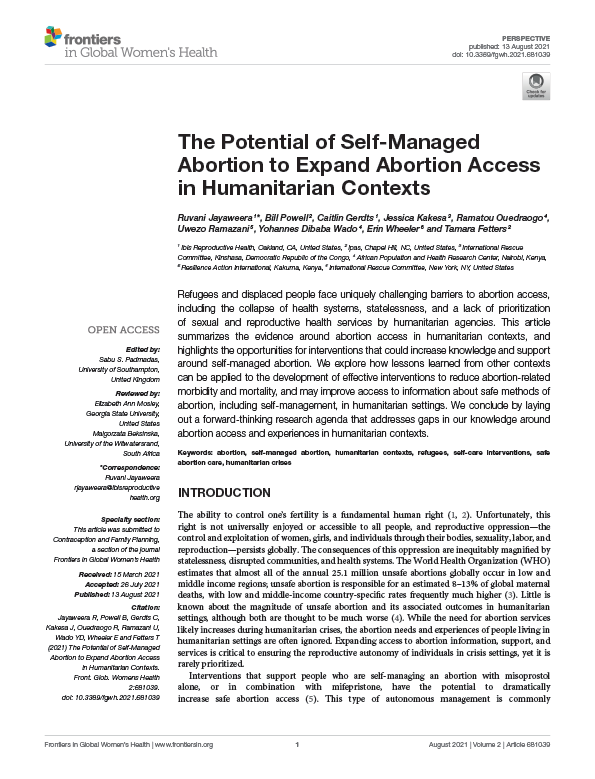
The Potential of Self-Managed Abortion to Expand Abortion Access in Humanitarian Contexts
Refugees and displaced people face uniquely challenging barriers to abortion access, including the collapse of health systems, statelessness, and a lack of prioritization of sexual and reproductive health services by humanitarian agencies. In this commentary published in Frontiers in Global Women’s Health, the authors summarize the evidence around abortion access in humanitarian contexts, and highlight the opportunities for interventions that could increase knowledge and support around self-managed abortion.
Authors: Ruvani Jayaweera (1), Bill Powell (2), Caitlin Gerdts (1), Jessica Kakesa (3), Ramatou Ouedraogo (4), Uwezo Ramazani (5), Yohannes Dibaba Wado (4), Erin Wheeler (6) and Tamara Fetters (2)
1. Ibis Reproductive Health, Oakland, CA, United States
2. Ipas, Chapel Hill, NC, United States
3. International Rescue Committee, Kinshasa, Democratic Republic of the Congo
4. African Population and Health Research Center, Nairobi, Kenya
5. Resilience Action International, Kakuma, Kenya
6. International Rescue Committee, New York, NY, United States

